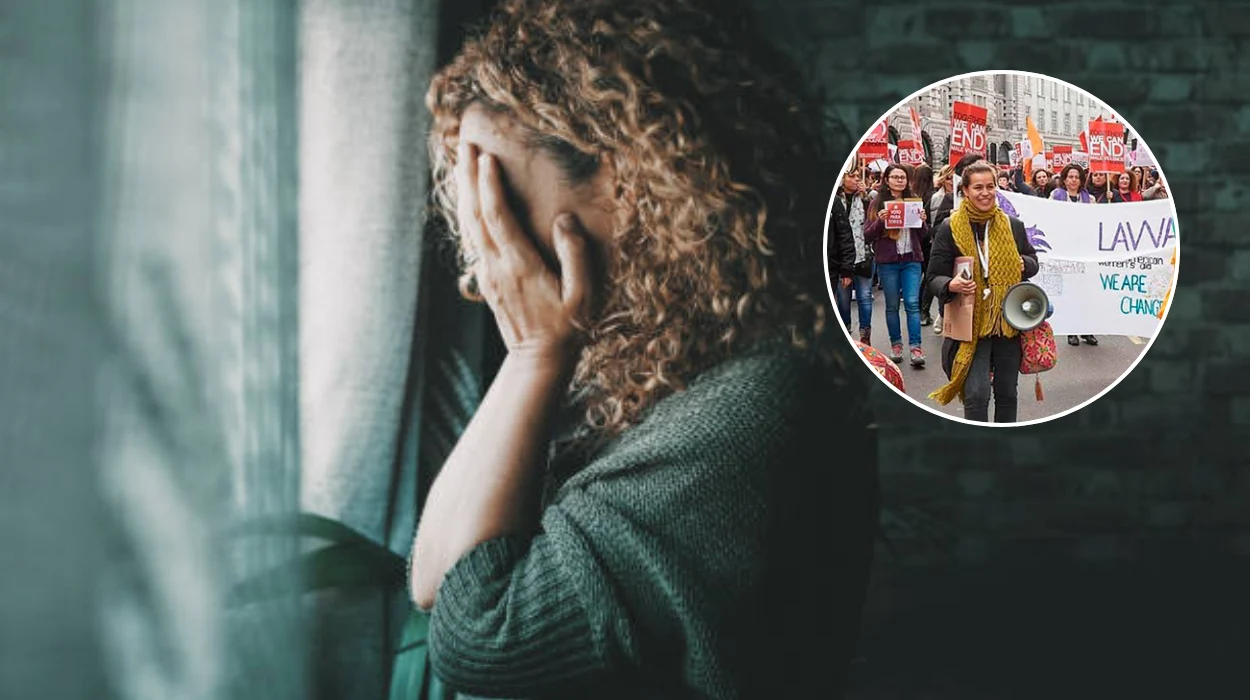Key Points:
- Hackney Labour councillor, Judy Riley, walked out of a domestic violence debate at Hackney Council.
- The walkout followed the rejection of her proposed amendment aimed at expanding support services for male victims of domestic abuse.
- The debate centred on council plans to enhance domestic violence prevention and victim assistance.
- Councillor Riley criticised the council’s approach, stating it was too focused on female victims and neglected male victims.
- Other councillors defended the current strategy as mindful of the scale and dynamics of domestic violence.
- The incident has raised questions about inclusivity and gender perception in domestic violence policy.
- Various media reported the controversy, providing statements from council members and advocates.
- The council affirmed its commitment to addressing domestic violence comprehensively for all affected groups.
What Happened During the Hackney Council Domestic Violence Debate?
As reported by journalist Emma Thompson of The Guardian, during a council meeting in Hackney, London, Councillor Judy Riley abruptly left the chamber after her amendment, which sought to increase support provisions specifically for male victims of domestic violence, was rejected by the majority of councillors. The debate itself was focused on approving new policies intended to strengthen support mechanisms for domestic violence victims within the borough.
- Key Points:
- What Happened During the Hackney Council Domestic Violence Debate?
- Why Did Councillor Judy Riley Walk Out?
- What Are Hackney Council’s Current Domestic Violence Policies?
- How Has the Public and Advocacy Groups Reacted?
- What Does This Incident Reveal About Gender Perceptions in Domestic Violence Policy?
- What Are The Next Steps for Hackney Council?
Councillor Riley, who has served on the Hackney Council for several years, expressed frustration at what she described as a “gender-biased” approach that prioritised female victims almost exclusively, leaving male victims under-supported. Following the vote, she stated:
“Domestic violence affects everyone, regardless of gender, and our policies must reflect that reality, rather than perpetuate assumptions about who suffers.”
Councillors opposing the amendment argued that although male victims are indeed deserving of support, evidence shows women disproportionately suffer domestic violence; thus, current policies primarily focus resources accordingly to serve the majority and most vulnerable victims. The amendment’s rejection was defended on the grounds of practical prioritisation rather than discrimination.
Why Did Councillor Judy Riley Walk Out?
According to an article by James Miller of the Evening Standard, Councillor Riley’s departure from the debate was a protest against what she perceived as a refusal by the council to acknowledge and address the needs of male victims of domestic abuse sufficiently. She had proposed an amendment intended to allocate funding for additional male-focused support services, including counselling and safe housing.
Despite attempting to make her case with evidence from recent studies indicating a rise in reported cases of male victimisation, the amendment was voted down after an extended discussion. Riley told reporters outside the council chambers,
“It was clear my colleagues were not willing to broaden their understanding, so I felt I could no longer meaningfully participate.”
This walkout has sparked a wider conversation about how domestic violence strategies should balance addressing the higher prevalence among women while not marginalising men who also face abuse.
What Are Hackney Council’s Current Domestic Violence Policies?
Hackney Council’s domestic violence policies, outlined in their recently published strategy document distributed before the meeting (as reported by Hackney Gazette), aim to reduce domestic abuse through a multi-pronged approach, including prevention, support for survivors, and community education.
The strategy emphasises specialist services for women and children, reflecting national statistics showing women experience more severe and frequent abuse. It includes funding for shelters, helplines, and programmes aimed at perpetrators to prevent repeat offences.
Council representatives have publicly stated their commitment to inclusivity, with one councillor noting,
“While women are statistically more likely to be victims, we do recognise male victims and will continue to develop services that meet diverse needs within our community.”
How Has the Public and Advocacy Groups Reacted?
As reported by the BBC, domestic violence advocacy groups have expressed mixed reactions. The local branch of Women’s Aid praised the council for maintaining focus on at-risk women while acknowledging that male victims deserve visibility and support as well.
Conversely, the Men’s Rights Forum cautioned that the dismissal of Riley’s amendment represented a wider reluctance in public policy to address male victimisation in domestic abuse properly. Their spokesperson said,
“Recognition is the first step toward effective help. Stories of male suffering are often overshadowed, and that must change.”
Public reaction on social media also reflected the debate’s polarising nature, with some users commending Riley for standing up for all victims, while others supported the council’s prioritisation based on evidence and statistical realities.
What Does This Incident Reveal About Gender Perceptions in Domestic Violence Policy?
Commentators including Sarah Beaumont of The Independent have suggested that the Hackney councillor’s walkout highlights ongoing challenges in framing domestic violence within gendered narratives. Beaumont wrote,
“This incident encapsulates the tension between recognising the gendered nature of domestic abuse and ensuring support systems are truly inclusive.”
Legal analyst Michael Gray, writing for the Law Gazette, noted,
“Policies focusing heavily on female victims reflect valid epidemiological data; however, they must remain adaptable to emerging data and ensure no victim group feels excluded or ignored.”
What Are The Next Steps for Hackney Council?
In response to the debate, Hackney Council released a statement asserting their dedication to reviewing domestic violence services continuously. They promised to consult more broadly with survivors of all genders and stakeholder groups to ensure the council’s approach evolves with community needs.
Councillor Riley indicated she would remain involved in these consultations but warned she would continue to push for more balanced representation in policy decisions regarding victim support.
The council also committed to improved data collection on male victims and a review of resources allocated to various demographics affected by domestic abuse.
This domestic violence debate episode in Hackney not only spotlights the complexities of policymaking in areas affecting vulnerable populations but also exemplifies the delicate balance between evidence-based prioritisation and inclusivity in social services. The council’s handling of this will be closely watched as a potential bellwether for how local authorities across the UK address these sensitive issues in the years ahead.



